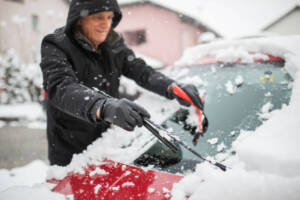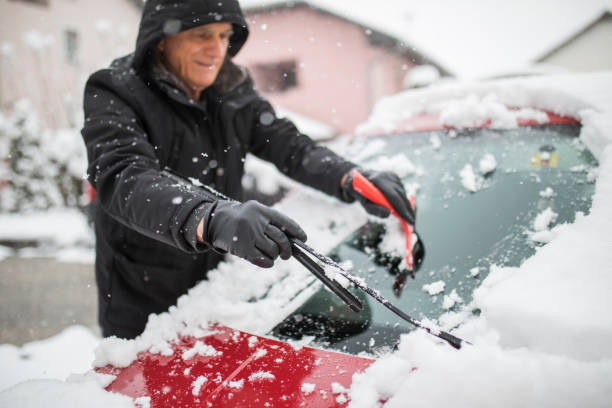Winter Safety Tips for Seniors
It’s that time of year again. Winter has arrived and weather advisories about snow, ice and chilling temperatures are everyday news for most parts of the nation. Unless you reside in the warmer climates or are one of the fortunate “Snow Birds” that migrate there for the winter months, it’s wise to know how to protect yourself and your loved ones from the dangers of colder weather.
Slip and Fall Precautions
Slip and fall injuries increase exponentially during winter months and seniors are especially vulnerable to these types of avoidable accidents. While most children and young adults can bounce up from an icy fall with little more than a bump or bruise, older adults are not as fortunate. Seniors account for most of the strains, sprains and fractures seen in emergency rooms during winter months, some of which require surgery and rehabilitation.
If you’re a senior or caring for one, it’s important to learn how to prevent slips and falls before they happen. Here are some simple tips that can prevent icy accidents:
Walk Smart
- Modify your gait when temperatures plummet. Be more deliberate by taking shorter steps, more slowly. It also smart to schedule more time for outside activities because that way, you’re never in a rush. Many slip and fall injuries occur because people are in a hurry, so give yourself extra time for errands and appointments.
- Wear winter footwear. Everyone has a favorite pair of comfy shoes but it’s wise to store them away for the winter or wear them only in the home because they may not be designed for gripping slippery surfaces. Wear warm winter boots or shoes when venturing outside in the winter weather because they generally have flat, rubber soles that provide better traction on snow and ice.
Be More Observant Outdoors
- Surfaces outside your home can appear safe, yet be an accident waiting to happen. The rain that fell last night could be ice in the morning and what you think is a fresh layer of walkable snow could be a cover for a sheet of black ice hiding underneath it.
- Proactively treat the walk-able surfaces near and around your home. When it snows, shovel it before it hardens into ice. There are a lot of inexpensive products at home stores and supermarkets such as salt, sand and ice melts that can prevent slips and falls. Their effectiveness varies according to the outside temperatures, so read the directions and follow the application instructions. Applying these products before weather events occur is especially advised because it allows sufficient time for these products to diminish the layers of snow and ice.
Protect Your Balance
- Purses, shopping bags, cell phones and other things you carry in your hands can throw you off balance if not properly handled or secured. Keep your cell phone in your purse or pocket and make sure the weight of any bags you carry are equally proportioned so you’re not off balance before you start walking.
- Don’t carry anything that obscures your vision. A large box or trash bag that limits your field of vision can hide something that leads to a fall and injury. Whatever it is you are carrying outside, make sure it doesn’t obstruct your ability to clearly see what’s in front of you.
Know Your Limitations
- It’s important for older adults to be active but when wintry conditions prevail, modifying the types of activities seniors engage in can prevent illnesses and injuries. Instead of walking outside, consider using an indoors treadmill or visit an enclosed mall to reach your daily step count goal.
- Even if you are just running to the mailbox or visiting a neighbor, bundle up and stay warm. As people age, they tend to generate less body heat and seniors are especially susceptible to the dangers of hypothermia. Certain drugs can also contribute to heat loss, so it’s advised to ask your doctor if any of your medications fall into this category or cause dizziness. Even mild symptoms of hypothermia can cause balance issues that result in falls.
- Cover your body. Wear a hat, gloves and a winter coat. If you happen to fall, a hat can cushion the blow to your head, gloves will protect your hands and a well-padded coat or jacket can minimize ground impact, each one helping to avoid serious injury.
It’s estimated that about one-third of people over the age of 65 fall each year with most falls happening during the winter months. Seniors are more likely to be injured because their bones are less elastic and prone to fractures that require hospitalization.
Not much can be done to change the weather, but smart seniors can better protect themselves from slip and fall injuries by knowing these helpful facts about winter safety.


